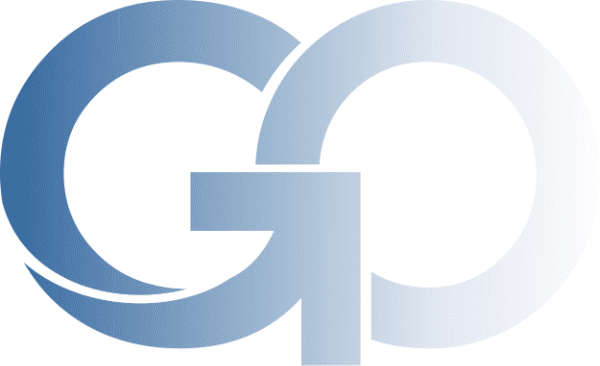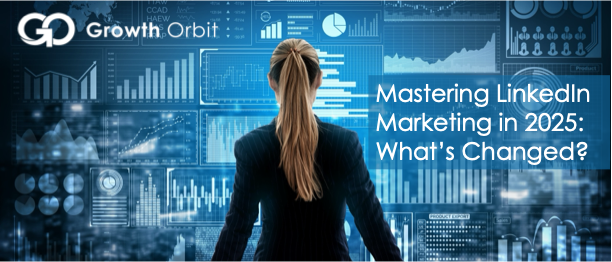SALES AND MARKETING TECH STACK SOLUTIONS
Empowering B2B Lead Generation and Sales Execution with Advanced Tech Stack Solutions
Sales and Marketing Technology are enablers. Read about 10 key characteristics high performing sales teams exhibit.
Steve Schilling
PARTNER
“In today’s rapidly evolving business landscape, the convergence of sales and marketing technology stands at the forefront of driving unprecedented growth. The critical role of a sophisticated tech stack cannot be overstated—it’s the backbone of successful B2B lead generation, sales effectiveness, and ultimately, revenue acceleration. With the emergence of AI, we’re witnessing a paradigm shift; these intelligent tools are not just enhancing our strategies, but revolutionizing the way we engage, analyze, and convert. At Growth Orbit, we’re committed to harnessing these advancements, ensuring our clients not only keep pace but set the pace in a digitally-driven market.”
Unlock Your Organization's Potential with Experience Tech Stack Consulting
WHAT WE DO
Proven Experience Combined with Technical Expertise
In an era where digital transformation dictates market dynamics, navigating the complex landscape of sales and marketing technology stacks becomes a formidable challenge for businesses. At Growth Orbit, we recognize the intricacies involved in making these pivotal decisions. The myriad of available options coupled with the critical nature of their impact makes choosing the right tools more overwhelming than ever.
Our service is tailored to demystify this process for you. We delve deep into understanding the unique fabric of your business – its needs, objectives, and the hurdles it faces. It’s not about pushing a one-size-fits-all solution; it’s about architecting a technology ecosystem that not only complements but enhances your sales and marketing strategies. This bespoke approach ensures that your operational workflows are streamlined for maximum efficiency and effectiveness.
More About Program Development:
Lead Generation Performance Metrics
The Importance of Market Segmentation

The Ultimate Guide to Sales & Marketing Technology
HOW WE DO IT
Assessment and Strategy: Our journey begins with a thorough analysis of your existing technology stack. This initial phase is crucial for identifying any inefficiencies, overlaps, or areas ripe for optimization. Armed with insights and backed by our expertise in industry-leading platforms such as HubSpot, Salesforce, SalesLoft, and Outreach, we’re equipped to offer best-practice recommendations that resonate with your business ethos.
Integrating Sales and Marketing: The core of our philosophy lies in harmonizing your sales and marketing efforts. By meticulously curating a tech stack that fosters synergy between these two pillars, we aim to streamline lead management, bolster customer engagement, and ultimately, drive conversions. The outcome is a robust, cohesive technology framework that not only addresses today’s needs but is poised to accommodate future growth.
Adaptability and Scalability: In recognizing the volatile nature of the digital landscape, our consulting ethos is centered around agility and foresight. We prioritize the implementation of scalable solutions that not only solve current challenges but are adaptable to future trends and growth trajectories. With Growth Orbit, you’re not just making a choice for the present; you’re strategically positioning your business for sustained success.
Partnering with Growth Orbit means choosing a path of clarity in a domain mired in complexity. Our commitment is to transform the daunting task of tech stack optimization into a strategic asset for your business, ensuring that every decision is informed, every solution is tailored, and your journey towards digital empowerment is seamless.
Growth Orbit’s Sales & Marketing Tech Stack Consulting Service
Tech Stack Strategy
Developing a cohesive tech stack strategy is essential for aligning your technology investments with your business goals, ensuring each component works synergistically to drive growth.
HubSpot
Leveraging HubSpot to its fullest potential is vital for businesses looking to streamline their inbound marketing efforts, improve customer relationship management, and automate sales processes effectively.Hu
Tech Stack Assessment & Optimization
Assessment and optimization of your tech stack are crucial for identifying inefficiencies, leveraging new opportunities, and maintaining competitive edge in a rapidly evolving digital landscape..
Salesforce
Maximizing Salesforce’s capabilities is essential for organizations aiming to enhance customer insights, personalize engagements, and drive sales efficiency through a robust CRM platform.S
Tech Stack Implementation
Expert implementation of your tech stack is key to avoiding costly mistakes, ensuring seamless integration across systems, and unlocking the full potential of your technology investments from day one.
AI & Sales Engagement
Integrating AI and advanced sales engagement technologies into your tech stack is critical for optimizing lead generation, personalizing customer interactions, and scaling your sales efforts intelligently.
Fully Managed Solutions
For businesses seeking to leverage a completely turn-key managed solution, our fully managed services are critical, offering end-to-end management of your tech stack to ensure optimal performance without the need for in-house expertise.
Why Your Sales and Marketing Technology Stack Matters
In today’s digital-first business environment, your sales and technology stack isn’t just a part of your operations; it’s the backbone of your strategic execution. This integrated set of tools and technologies directly impacts every facet of your business, from how you attract and engage potential customers to the way you close deals and foster long-term relationships.
A well-designed sales and technology stack empowers your team with the insights and efficiency needed to target the right prospects, personalize outreach, streamline sales processes, and ultimately, close more deals faster. It ensures that your sales and marketing efforts are not just aligned but are also leveraging data-driven insights to predict and meet customer needs more effectively.
Moreover, in an era where customer experience can set you apart from the competition, your tech stack plays a pivotal role in delivering seamless, memorable interactions at every touchpoint. It allows for automation where beneficial, personalization at scale, and provides the analytics foundation necessary to continually refine and improve your strategies.
However, the challenge isn’t just in having a tech stack but in strategically selecting, integrating, and optimizing these technologies to work together cohesively. This is where the true power of your sales and technology stack is unlocked—not just as a sum of its parts but as a cohesive ecosystem that drives your business forward.
Whether you’re just beginning to build your stack, looking to optimize your current setup, or exploring fully managed solutions, understanding the critical role of your sales and marketing technology stack is the first step towards transforming your business operations and achieving your growth objectives.
Frequently Asked Questions about Sales & Marketing Tech Stacks
How often should I evaluate my sales and marketing tech stack?
It’s advisable to evaluate your tech stack at least annually or whenever significant shifts occur in your business strategy, market conditions, or technology advancements. Regular assessments help ensure your stack remains aligned with your goals and operates at peak efficiency.
Can I integrate tools from different vendors in my tech stack?
Absolutely. Integration between tools from different vendors is common and often necessary to create a seamless workflow. However, it’s important to ensure these tools have compatible integration capabilities or to use middleware solutions that can facilitate communication between disparate systems.
How do I measure the ROI of my sales and marketing tech stack?
Measure the ROI by comparing the performance metrics (such as lead conversion rates, sales cycle length, customer acquisition costs) before and after the implementation or optimization of your tech stack. Additionally, consider qualitative improvements like team productivity and customer satisfaction.
What’s the biggest mistake companies make with their tech stacks?
One of the biggest mistakes is overcomplicating their tech stack with too many tools or choosing solutions that don’t integrate well. This can lead to inefficiencies, data silos, and a steep learning curve for teams, ultimately hindering rather than helping your business processes.
Should small businesses approach their tech stack differently from larger enterprises?
Small businesses should focus on flexibility and scalability when building their tech stack. Start with essential tools that cover multiple functions and choose solutions that can scale as your business grows. Avoid overly complex or niche solutions until your business needs demand such specificity.
How important is user adoption in the success of a new tech stack?
User adoption is crucial. Even the most sophisticated tech stack won’t deliver value if your team isn’t using it effectively. Ensure the tools you choose are user-friendly, and invest in training and change management to encourage adoption.
Can a tech stack impact customer experience?
Definitely. A well-integrated tech stack can enhance customer experience by enabling personalized communication, timely responses to inquiries, and seamless interactions across different channels. Conversely, a disjointed tech stack can lead to a fragmented customer experience.
How can I ensure my tech stack stays competitive?
Stay informed about new technologies and industry trends, regularly review your stack’s performance, and be willing to adapt by adding, removing, or replacing tools as needed. Collaboration with a tech stack consulting firm can also provide insights and recommendations to keep your stack competitive.
Sales & Marketing Tech Stack Terms Every Leader Should Know
Here’s a short list of essential terms that every Sales & Marketing Leader should know, especially in the context of tech stacks and digital transformation:
CRM (Customer Relationship Management): Software that helps manage a company’s interactions and relationships with both current and potential customers.
Marketing Automation: Technology that manages marketing processes and multifunctional campaigns across multiple channels automatically.
Sales Enablement: The strategic use of people, processes, and technology to improve sales productivity and increase revenue.
Lead Scoring: A methodology used to rank prospects against a scale that represents the perceived value each lead represents to the organization.
Conversion Rate: The percentage of users who take a desired action, often used to gauge the success of a webpage or campaign.
API (Application Programming Interface): A set of rules and protocols for building and interacting with software applications, enabling different systems to communicate with each other.
SaaS (Software as a Service): A software distribution model in which applications are hosted by a vendor or service provider and made available to customers over the internet.
Content Management System (CMS): A software application used to create, edit, manage, and publish content in a consistently organized fashion.
Churn Rate: The rate at which customers stop doing business with an entity. In a tech stack context, it could relate to the turnover of software tools within the stack.
Conversion Funnel: The journey a prospect takes through your marketing and sales process that ultimately results in a conversion.
Lead Magnet: An incentive that marketers offer to potential buyers in exchange for their email address or other contact information.
Understanding these terms can significantly enhance a leader’s ability to make informed decisions, strategize effectively, and drive their organization’s sales and marketing efforts towards success.
WHITE PAPER
10 Characteristics of High Performing Sales Organizations
Get your Free Copy of Growth Orbit’s Insightful White Paper
WHITE PAPER



